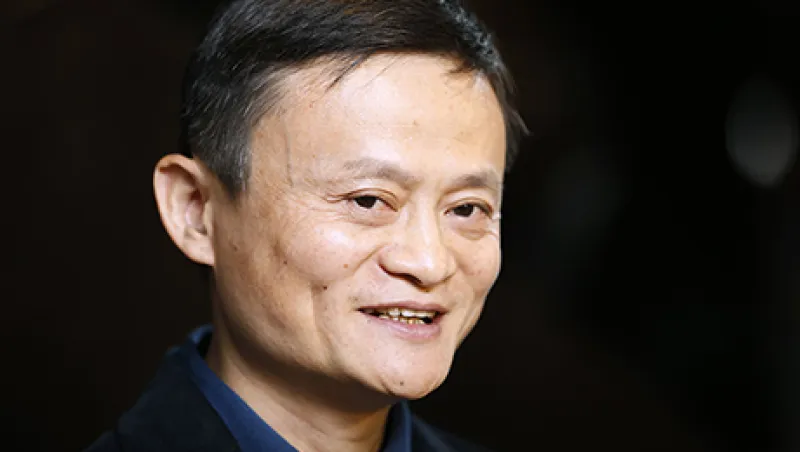
Bloomberg Photo Service 'Best of the Week': Billionaire Jack Ma, chairman of Alibaba Group Holding Ltd., speaks to members of the media after arriving for a meeting at the Ritz-Carlton hotel in Hong Kong, China, on Monday, Sept. 15, 2014. Alibaba, the e-commerce company whose fortunes surged along with China's economy, plans a historic U.S. initial public offering that may also claim the global record. Photographer: Brent Lewin/Bloomberg *** Local Caption *** Jack Ma
Brent Lewin/Bloomberg


